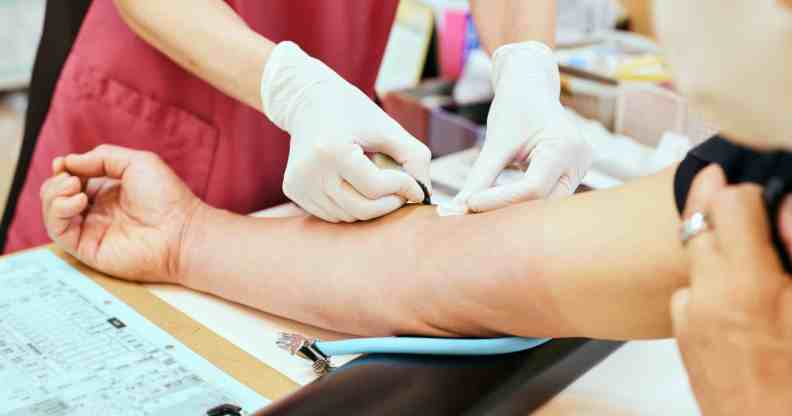New ‘mad cow’ blood donation rules could mean long-overdue change for LGBTQ+ donors

Seniors who receive regular medical examinations to maintain their health
Australia’s decision to lift a ‘mad cow’ ban that prevented people who had been to the UK during the 1980s from donating blood has prompted calls for further LGBTQ+ bans to be lifted.
The ban, which was introduced in 2000, prohibited UK residents from 1980 to 1996 to give blood in the country as a tactic to stop the spread of mad cow disease.
After it was confirmed that the risk of mad cow disease had diminished to around one in 1.4 billion, the Therapeutic Goods Administration actioned the ban to be removed. According to The Conversation, the removal of restrictions means that more than 750,000 Australians can now potentially donate blood.
Our first new donor with the lifting of the ‘mad cow’ rule! Prof Matthew Law from the @KirbyInstitute donated at Town Hall in Sydney. He’ll be speaking to the modelling that informed the change at our press conference at 10.30am. Thanks for your donation Matthew! pic.twitter.com/GlQNORcma4
— lifebloodau (@lifebloodau) July 24, 2022
The lifting of the ban has prompted several LGBTQ+ advocates to call for further relaxation of rules relating to blood donations, which currently prohibit several LGBTQ+ identities from donating blood unless they abstain from sex for three months.
Spokesperson for the Let Us Give campaign Thomas Buxereau, who advocates for the removal of LGBTQ+ restrictions put in place during the AIDS crisis, said according to SBS News: “According to Lifeblood, Australia’s blood supply is dangerously low – our goal is simple, to help those in need by giving blood.
“If Australia adopts a new policy whereby all donors of whole blood are assessed for their individual risk regardless of the gender of their sexual partner, there will be an extra 25,000 litres of whole blood available to save the lives of Australians in need,” he told Star Observer.
Celibacy periods for LGBTQ+ individuals to donate blood were reduced in 2021 from a full year to the current three-month period after similarly prolonged calls to mitigate the restrictions.
Now, Lifeblood director of research Dr David Irving said the organisation is considering reducing it further or even removing it outright.
“We’re continuing to review those various different deferrals. But I think the important thing that we do first and foremost is to ensure that we’ve got a safe and secure blood supply for patients,” he said.
“We’re in constant discussion with Therapeutic Goods Administration about that, particularly for our plasma donation.”

